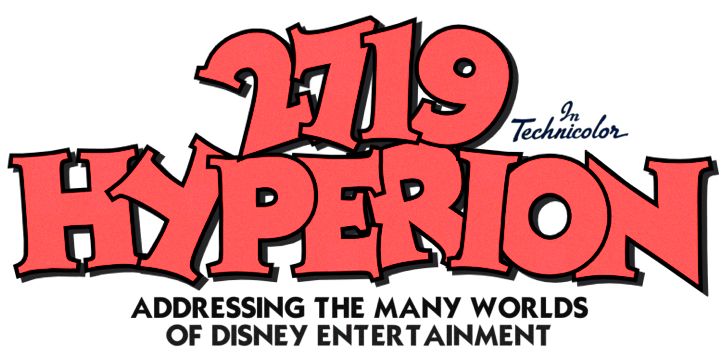From Kirk Douglas' 1988 autobiography The Ragman's Son: "I was shocked at Disney's audacity in exploiting my children."
What was the star of Disney's own 20,000 Leagues Under the Sea so upset about? So much so that he carried a grudge for three decades?
Sometime in early 1956, Kirk Douglas and his two young sons, Joel and Michael, spent a Saturday afternoon at Walt Disney's Holmby Hills estate. The highlight of the visit for Kirk and his kids was the opportunity to ride on the Carolwood Pacific, Walt's 1/8 scale model railroad. Shortly thereafter, film footage of the older Douglas sitting atop a miniature engine and navigating a trainload of kids around Walt's backyard appeared on an episode of the Disneyland television program. The show in question, Where Do the Stories Come From, demonstrated how the inspiration for the 1951 Donald Duck cartoon Out of Scale came from the model railroading hobbies of Walt and two of his animators, Ollie Johnston and Ward Kimball. The episode first aired on April 4, 1956.
Douglas was surprised and distinctly irritated by the footage. "I wrote him a letter saying that I would prefer that he never use film of my kids and me on a commercial program," he revealed in The Ragman's Son. He noted that he then received a letter of apology in return.
But when Where Do the Stories Come From was rerun just two months later on June 6, 1956, the footage in question was still included in the program. Douglas was outraged. On the advice of his lawyer, he initiated a lawsuit that named Walt, the Disney Studios, the ABC television network and the program's sponsors among the defendants. Douglas insisted it was a matter of principle and if he won, any monetary awards would be donated to charity.
But according to Douglas in his autobiography, just before the matter went to trial he had misgivings. "I thought, what am I doing? There are some people in our profession –Bob Hope, Walt Disney-who can do no wrong." Over the objections of his lawyer, he dropped the suit. "I doubt if I could have gotten anywhere with it. You can't sue God."
Douglas' recollections, while apparently noble on the surface, are seemingly at odds with the public record from the summer of 1956. In The Ragman's Son, he portrays himself as the offended parent, furious over the seeming exploitation of his children. Yet, upon examining the film footage in question, the Douglas sons are at no point either identified or mentioned. Numerous children are shown riding the train, but there is no direct correlation between any of them and Kirk Douglas, at least not to the public at large to which Joel and Michael would certainly have been unrecognizable.
 Douglas' exploitation charge becomes especially curious when examining newspaper accounts of the affair from the summer of 1956. He sued for $400,000 in damages and an additional $15,000 for compensation for the "work" he did in the filmed footage. He claimed the matter was an invasion of privacy, but according to multiple reports, emphasized more that ". . . the showings damaged his reputation and earning power, because his status and income potential are based on the kind and number of appearances he chooses to make and the payment he gets for these performances." It appears that what really upset the actor was that he wasn't paid for the appearance.
Douglas' exploitation charge becomes especially curious when examining newspaper accounts of the affair from the summer of 1956. He sued for $400,000 in damages and an additional $15,000 for compensation for the "work" he did in the filmed footage. He claimed the matter was an invasion of privacy, but according to multiple reports, emphasized more that ". . . the showings damaged his reputation and earning power, because his status and income potential are based on the kind and number of appearances he chooses to make and the payment he gets for these performances." It appears that what really upset the actor was that he wasn't paid for the appearance.Not so coincidentally, a couple weeks after the charges were filed, Douglas expounded on how television had the means to undermine his career and livelihood. In a newspaper column he himself penned, he stated, "I feel if people can twist a knob and see me in their living rooms every week, they will not leave the house to pay to see me in a film."
In fairness, Walt Disney is not without blame in the matter. The studio agreed not to use the footage in subsequent airings of Where Do the Stories Come From and whether by error or design, failed to live up to that accord. In response to the suit, Walt stated publicly that, "The entire appearance of Mr. Douglas on television was for 26 seconds and it is inconceivable that a man who has appeared so extensively in motion pictures, magazines and television could be damaged on a television screen in that amount of time." But had the studio excised the footage as promised, the entire matter would have been over before it started.



It's not impossible that they somehow edited out any narration identifying his kids for DVD.
ReplyDelete